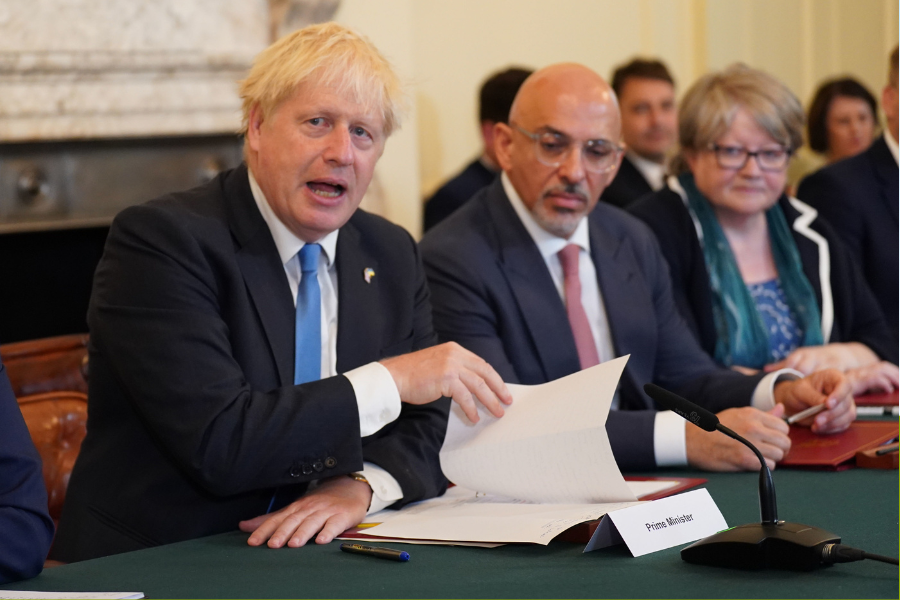
AS someone in their early 30s – a dreaded, avocado-munching, latte-sipping, economy -destroying millennial if you believe the hype – I would characterise my years growing up in Scotland to fall into the category of “interesting times”.
Allegedly a traditional Chinese curse, the political and economic climate of the United Kingdom has indeed meant that my peers have faced declining standards in living compared to previous generations, rampant financial mismanagement that disproportionately disrupted our lives and a rapid expansion of the gap between the richest and poorest in society.
Add to that a couple of wars, a global pandemic and an ongoing pushback against human rights across the planet, and you have yourself quite the party. Obviously, older generations are experiencing these events too – but in contrast, for us and those who came after, it is all we have ever known.
And watching over that for the majority of my life, despite being rejected by the Scottish ballot box at every single election, has been the many-headed Hydra of the Conservative Party. Leaders come and go, through scandal and the well-placed knives of their colleagues, but the Hydra itself is a far more difficult beast to kill.
As the Ancient Greek and Roman myths go, to remove a head of the Hydra is a sure-fire means to make your problems substantially worse. As one falls to the ground, two equally vicious come to burst from the neck of the body politic and take its place.
Exit stage left, Boris Johnson. Enter stage right, Rishi Sunak and Liz Truss.
Same beast, but now with more teeth. Truss and Sunak are falling over themselves to play to their right-wing bases, without the performative upper-class blundering of Johnson. In this race to the bottom, both have already committed to expanding the foul Rwanda deportation scheme and useless tax cuts for corporations; both are bad news for Britain’s minority groups; and for all their talk of fresh starts and moving forward, both held prominent positions in Boris Johnson’s Cabinet. Two heads to replace their fallen leader, and neither much better than the other.
If there is a lesson to be taken from the trials of Heracles, alongside recent political history in the United Kingdom, it would be that the only real way to kill the Hydra is to remove the head and cauterise the wound before anything has the chance to grow back. That is, to remove it from office.
A Conservative party leader and prime minister whose time in Downing Street comes to a natural and voluntary close is an increasingly rare phenomenon on these islands. Instead, we have only the vortex of straining necks and teeth and heads fighting, always fighting, to reach the top. Looking back to previous governments, the end of Conservative Party rule in the UK seems to come about when, having reached a critical mass of vicious and snarling heads, the beast finds itself unable to do anything other than collapse under its own weight.
David Cameron, having been cajoled and spooked by the increasingly far-right dalliances of his party and supporters, caved to their cries of “rah rah Britannia” and granted the Brexit referendum; a dirty fight that brought the worst of British exceptionalism to the fore and ultimately led to his resignation.
Theresa May followed in his footsteps before resigning herself following an ineffectual and awkward time in the spotlight.
Johnson’s departure makes it three consecutive resignations of Tory Party leaders whose time in Downing Street was much shorter than they had intended. The Prime Minister will be remembered for one of the most shambolic, disgraced premierships in British history – but really he was the natural conclusion of the Conservative Party. I’m sure Johnson would appreciate the comparison, but his time at Downing Street could be seen as analogous to the Thatcher years; both were the results of an institution whose foundational greed, nastiness and ambition, left unchallenged, reached its natural and unsustainable conclusion.
Thatcher’s time in Downing Street came to an end following riots, strikes and irreparable damage to working-class communities across Britain. Her resignation left the party changed, partially reined in once more until Tony Blair kicked out John Major in ‘97 (who then also resigned).
The Conservative Party may talk big come elections about how the vote is between themselves and the chaos of the opposition, but their own record could hardly show a more dysfunctional grouping of leadership hopefuls.
William Hague, who took over from John Major, resigned in 2001 after getting hammered in the elections. Iain Duncan Smith resigned after losing a vote of no confidence. Michael Howard resigned after leading the party to failure once again only to be papped into the House of Lords. Another head slips to the ground, another two replace it.
The relatively stable years of governance from the SNP look positively unshakeable in contrast to the snarling, backstabbing maelstrom of Westminster. With a second independence referendum on the horizon, the Conservatives are right that we have a choice between chaos and stability – but they are wrong about which side they sit on.







